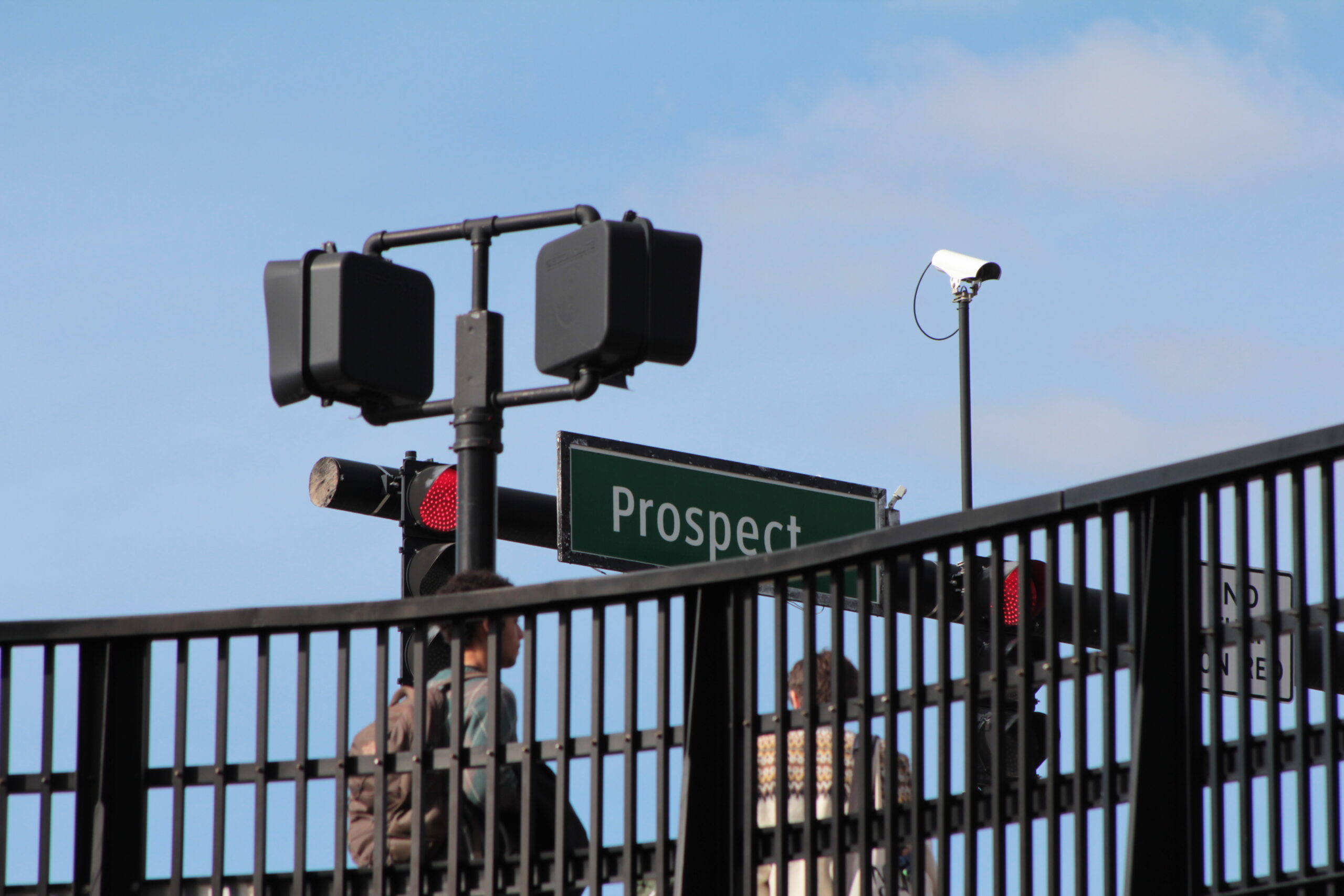Locals, concerned about traffic safety, skeptical of planned red-light cameras
After the state approved New Haven’s plan to install red-light cameras at 15 intersections, locals expressed both support for and skepticism about the project.

Alex Hong, Contributing Photographer
By mid-2026, 15 red-light cameras will be installed at intersections across New Haven.
On Oct. 17, the Connecticut Department of Transportation approved 15 of the 19 locations proposed for the installation of automated traffic enforcement safety devices, known as red-light and speed safety cameras. Pending approval by the Board of Alders, officials are aiming to operationalize the devices by the middle of next year. While officials emphasize that the cameras will make roads safer, the opinions of New Haven residents and commuters reflect a broader conversation about traffic and infrastructure in the city.
“There are a lot of areas that are just unsafe to cross,” local resident Alexandra Guzman said. “I mean, there’s an accident on the boulevard every, what, couple of weeks?” she said, gesturing to the MLK Boulevard and Church Street intersection, where a new camera will be installed.
Similarly, Evelyn Gao SPH ’26 regularly witnesses reckless driving, she said.
“I myself have had close encounters with reckless drivers,” she said. “They run through red lights, they disregard pedestrians, and as a pedestrian, I don’t always feel safe, which is a very big concern.”
Hailey Accettullo, a Gateway Community College student, also said that traffic protocols are often ignored.
“People just don’t really respect the signals or speeding rules,” Accettullo said.
Concerns about the disregard of traffic rules were echoed by multiple other community members, including Tim Dutcher, who works at a local nonprofit in New Haven. Dutcher said New Haven has a unique driving culture.
“Driving in New Haven sort of has its own rules,” he said. “Usually, a yellow means slow down, but it’s really that the first three seconds of a red is like a yellow. And if you’re at a stoplight and there’s no one coming, that’s often just treated like a stop sign.”
Despite pedestrians’ concerns with driving practices in New Haven, for many locals, the cameras are a temporary fix for larger infrastructure problems.
“It’s not solving the problem. I mean, you can give someone a ticket a million times, and it’s not going to change the overall issue,” Guzman said about the planned installations.
Guzman and Accettullo both welcomed the cameras but said they believe that the key issue is the long wait time for traffic signs to change.
“I think there’s more of an issue with there not being enough walk signs in some places, or that walk signs take too long to change,” she said. “And when the traffic lights take too long to change, that encourages people further to just cross the red light.”
Accettullo agreed that the cameras would increase pedestrian safety, but echoed concerns about signals taking too long.
“I think there would actually be less accidents if the lights were a little more reasonably programmed or timed,” she said.
Meanwhile, Gao does not predict that the new cameras will be particularly effective. Instead, she suggested that public accountability could have more of an impact on safety.
“I feel like civilian vigilantes could be a way to resolve this. It would be helpful if people put effort into surveilling reckless driving and call it out when they encounter it,” she said.
New Haven Police Department Public Information Officer Christian Bruckhart said that the cameras are part of a broader attempt at making the city safer.
“Officers are going to be out making traffic stops for violations,” he said. “But I think it’s a recognition that the police can’t be everywhere all at once, so traffic cameras are part of a multifaceted approach at calming traffic.”
Additionally, Bruckhart said that New Haven’s road infrastructure contributes to unsafe driving practices.
“A lot of these roads were designed in the ’50s and ’60s with the intention of moving traffic quickly. The purpose of those roads are no longer suited for how the city wants to develop now,” he said.
In a written statement, Mayor Justin Elicker said that red-light and speed cameras are not intended to be used for punishment. Instead, they are meant to serve as a new tool to promote responsible driving, he wrote.
“We don’t want to issue tickets. We want people to drive safely–– especially around our schools. These cameras will be installed at historically dangerous intersections and corridors, and we’re hopeful that they will quickly incentivize drivers to stop going through red lights, stop speeding and obey our traffic laws,” he wrote.
Looking ahead, Elicker wrote, “We look forward to submitting the final agreement to the Board of Alders for their approval and then operationalizing these cameras in 2026.”
The Board of Alders plans to review and consider the planned installations at their upcoming meeting on Nov. 6.
Interested in getting more news about New Haven? Join our newsletter!







